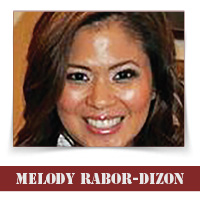
By: Melody Rabor-Dizon
Per American Nurses Association (ANA) defines a healthy nurse as someone who actively focuses on creating and maintaining a balance and synergy of physical, intellectual, emotional, social, spiritual, personal and professional well-being. Being a nurse, we are in a position of good reference, a position for a role model, a position to teach, educate, a position to bring a change and in a position of credibility. Self-care is as important as patient care. I always say, you cannot give what you don’t have.
So how do nurses take care of themselves?
As listed in the Center for Disease Control’s National Institute for Occupational Safety and Health, you may want to take advantage of what your employer already offers:
• Participate in onsite programs, trainings, screenings, health fairs, safety days, and coaching opportunities. • Join a health, safety or well-being committee if one exists. Voice your needs and preferences in the design of onsite programs.
• Take advantage of healthy food options, nutrition sessions, and weight management programs.
• Commit to using the onsite fitness facilities and exercise classes when available, or use discounts to community resources if provided. • Join or start a walking group before work, after work, or during breaks.
• When participating in a work party or celebration, bring healthy food options.
• Team up with co-workers to bring a shared, healthier meal a few days per week.
• Complete safety surveys or health risk appraisals when offered.
• Let your voice be heard! Complete satisfaction surveys or use the suggestion box.
The Code of Ethics for Nurses with Interpretive Statements states that “Nurses should model the same health maintenance and health promotion measures that they teach and research, obtain health care when needed, and avoid taking unnecessary risks to health or safety in the course of their professional and personal activities.” Nurses should commit to eat a healthy diet, exercise, and get sufficient rest. These activities combined with a satisfying work environment further the nurse’s maintenance of individual health and well-being.”
Healthy Weight is just one aspect of being a Healthy Nurse, but nutrition and fitness (or diet and exercise) are often the first things we think of when we talk about health and wellness. We tend to associate a Healthy Weight with restrictive (and often unpleasant) dieting. However, Healthy Weight is a lifestyle and can lead to improved overall health, increased energy, and improved selfesteem.
This can be achieved by:
• Eating a balanced diet with whole grains and fresh fruits and vegetables
• Enjoying sweets, fats, and alcohol in moderation.
• Reasonable portion sizes (which, in our “more is better” world, seem small at first)
• Less snacking • Drinking more water and less sugary drinks – including fruit juices
• Moving more and sitting less
• Less screen time
Ultimately, it is a balance of energy in (nutrition) and energy out (fitness). And it is about maintaining your health, feeling good about yourself, and having more energy to enjoy your life.
Self- Care
Nurses are the consummate caregivers, often sacrificing their own health and wellness while taking care of others. Self-care means choosing behaviors to counter emotional and physical stress, from exercise and nutritious eating to practicing self-centering activities. Given the emotional stress and strains inherent in your profession, it is important that you make self-care a priority. It is vital to your well-being and enables you to effectively continue your day-to-day practice of healing and caring for others, stated by Kim Richards in her book Self-Care and You.
Fighting stress the holistic way
Chronic stress has systemic effects, and the approach to fighting them should be holistic. Adequate intake of key nutrients through a diet rich in whole foods gives you valuable resources to fight the effects of chronic stress.
The nature of nursing practice and the involvement of nurses in sometimes highly stressful life events and critical decision-making can be challenging to maintain a healthy work-life balance. The Code of ethics for Nurses states that “Nurses have both personal and professional identities that are integrated and that embrace the values of the profession.” In order to maintain a healthy balance, nurses must maintain personal integrity and wholeness of character. This is a self-regarding duty in difficult situations when nurses may face a threat to his or her integrity. Preservation of integrity can be difficult to achieve in stressful situations, but is more likely to be accomplished where there is a safe environment of mutual respect, as interpreted by American Holistic Nurses Association.
Fitness
Exercising, brisk walking, getting your heart rate up, anything that we have taught our patients what is good for them is also good for us. The Code of Ethics for Nurses with Interpretive Statements guides nurses in everyday practice in all settings. Interpretive Statement of the Code states that “Fatigue and compassion fatigue affect a nurse’s professional performance and personal life. To mitigate these effects, nurses should eat a healthy diet, exercise, get sufficient rest, maintain family and personal relationships, engage in adequate leisure and recreational activities, and attend to spiritual or religious needs.” Nursing can be a fast-paced and demanding profession, but “nurses in all roles should seek this balance, and it is the responsibility of nurse leaders to foster this balance within their organizations.”
 VIA Times – May 2017 Issue Vital News, Vibrant VIews for Asian Americans in Chicago & Midwest
VIA Times – May 2017 Issue Vital News, Vibrant VIews for Asian Americans in Chicago & Midwest

